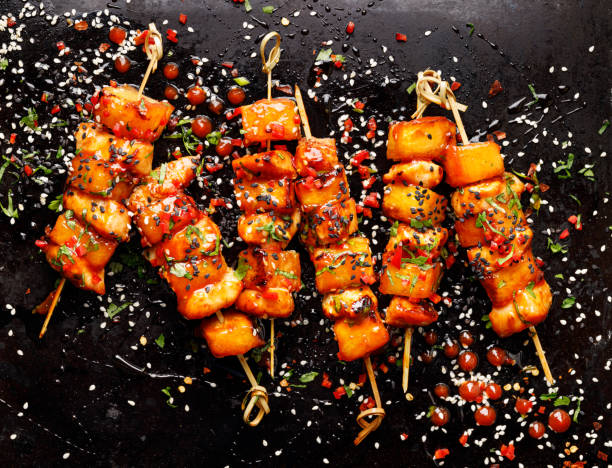Master the Art of Cooking Tender and Juicy Chicken: Recipe Guide for All Occasions
Juicy Chicken Recipes
Chicken is one of the most versatile and widely loved meats. Its mild flavor and tender texture make it a perfect ingredient for a variety of dishes. However, achieving juicy and tender chicken can be a challenge for many home cooks. In this recipe guide, we will explore different techniques and tips to help you master the art of cooking tender and juicy chicken for all occasions.

Cooking Tender Chicken
When it comes to cooking tender chicken, there are a few key factors to consider:
1. Choosing the Right Cut
Not all chicken cuts are created equal when it comes to tenderness. For recipes that require quick cooking, such as stir-fries or grilling, opt for boneless, skinless chicken breasts or chicken tenders. These cuts cook faster and are naturally more tender. For slow-cooking recipes or dishes that require a longer cooking time, such as stews or casseroles, bone-in chicken thighs or drumsticks are excellent choices as their higher fat content helps to keep the meat moist and flavorful.
2. Marinades and Brines
Marinating or brining chicken before cooking can greatly enhance its tenderness and juiciness. Marinades are flavorful liquid mixtures that usually contain acid (such as citrus juice or vinegar), oil, herbs, and spices. They help to tenderize the meat and infuse it with delicious flavors. Brines, on the other hand, are saltwater solutions that not only add flavor but also help the chicken retain moisture during cooking. Consider marinating or brining the chicken for at least 30 minutes to overnight before cooking for optimal results.
3. Proper Cooking Techniques
The cooking technique you choose can significantly affect the tenderness of the chicken:
a. Searing
Searing chicken before baking, grilling, or braising helps to seal in the juices and create a flavorful crust on the outside. Heat a skillet with some oil over medium-high heat and cook the chicken until it develops a golden-brown color on both sides. Then, transfer it to the oven or continue with the chosen cooking method.
b. Slow Cooking
For incredibly tender and juicy chicken, consider using the slow-cooking method. This technique involves cooking the chicken at a low temperature for an extended period, allowing the meat to become tender and moist. Slow cookers and braising pots are great tools for this cooking method.
c. Poaching
Poaching chicken in flavorful liquid, such as broth or wine, is another method to achieve tender and juicy results. Bring the liquid to a gentle simmer, add the chicken, and cook until it reaches an internal temperature of 165°F (74°C). The slow, moist heat helps to keep the chicken juicy.

d. Breading and Frying
If you prefer a crispy exterior with a tender and juicy interior, consider breading and frying chicken. The breading adds a delightful crunch while keeping the chicken moist and succulent on the inside. Ensure the oil is at the correct temperature to achieve a crispy and cooked-through result.

Chicken Cooking Tips
Here are a few additional chicken cooking tips to keep in mind:
1. Properly Season the Chicken
Season the chicken generously with salt and pepper, or with your preferred herbs and spices. Seasoning the meat before cooking adds flavor to every bite.
2. Allow the Chicken to Rest
After cooking the chicken, let it rest for a few minutes before cutting into it. This allows the juices to redistribute throughout the meat, resulting in a juicier and more flavorful chicken.
3. Use a Meat Thermometer
Investing in a good-quality meat thermometer is essential to ensure that your chicken is cooked to perfection. The internal temperature should reach 165°F (74°C) for safe consumption.
4. Avoid Overcooking
Overcooking chicken can lead to dry and tough meat. Keep a close eye on the cooking time and use a timer if necessary to prevent overcooking.
5. Quality Ingredients
Opt for high-quality chicken from reputable sources. The quality of the ingredients used can greatly impact the final result.
6. Experiment with Flavors
Don’t be afraid to experiment with different flavors and ingredients when cooking chicken. Try various marinades, spices, and herbs to discover new and exciting flavor combinations.
Conclusion
By following these techniques, tips, and recipes, you can master the art of cooking tender and juicy chicken for all occasions. Whether you’re grilling, baking, frying, or slow-cooking, understanding the principles behind tenderizing and retaining moisture in chicken will result in delectable dishes that will surely impress family and friends.






